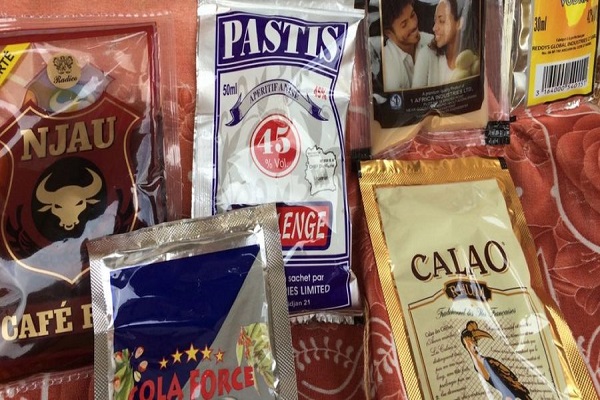
The National Agency for Food and Drug Administration and Control (NAFDAC) has banned alcoholic beverages produced in sachets less than 200ml. Disclosing this to newsmen, the director-general of NAFDAC, Prof Mojisola Adeyeye, said the five-year window given to the manufacturers of the products to stop producing the drinks in sachets and pet bottles which began in 2028 elapsed on January 31, 2024. She said enforcement of the ban commenced on February 1, 2024.
According to her, the agency took the decision to ban the production of the drinks in such sachets because of the negative effects on underage children. She said because the drinks come in pocket-friendly sizes, accessible and affordable, children easily fell for the packages only to face the consequences in the future.
“This decision was based on the recommendation of a high-powered committee of the Federal Ministry of Health and NAFDAC on one hand, the Federal Competition and Consumer Protection Commission (FCCPC), and the Industry represented by the Association of Food, Beverages and Tobacco Employers (AFBTE), Distillers and Blenders Association of Nigeria (DIBAN), in December 2018.
As a commitment to the decision reached at the end of this Committee meeting, producers of alcohol in sachets and small volume agreed to reduce the production by 5 percent with effect from 31st January 2022 while ensuring the product is completely phased out in the country by 31st January 2024”.
According to her, the future of the country supersedes other considerations in the enforcement of the policy. Noting that saving Nigerian children and protecting the health of the larger society is paramount, Adeyeye said
“The people who are mostly at risk of the negative effect of consumption of the banned pack sizes of alcoholic beverages are the under-aged and commercial vehicle drivers and riders. The World Health Organization has established that children who drink alcohol are more likely to: use drugs, get bad grades, suffer injury or death, engage in risky sexual activity, make bad decisions and have health problems.
The World Health Organization also stated that harmful consumption of alcohol is linked to more than 200 health conditions including infectious diseases (tuberculosis and HIV/AIDS) and non-communicable conditions (liver cirrhosis and different types of cancer). It is also associated with social problems such as alcohol addiction and gender-based violence.
To curb the menace of abuse of alcohol, the World Health Organization recommended some actions and strategies to Policy-Makers that have shown to be effective and cost-effective, which include: regulating the marketing of alcoholic beverages (in particular to younger people) and regulating and restricting the availability of alcohol.”
She said in the course of enforcing the ban it was discovered that some manufacturers were still in production of the banned products and still had stacks of both finished products and packaging materials of the products in their possession.
“This situation is of course not acceptable, and the Agency views this as flagrant disobedience to the laws of Nigeria. NAFDAC views this matter seriously and will engage all statutory means, which may include prosecution, to deal with the matter”.
She warned that there is no going back on the decision.
“I want to use this medium to ask all holders of alcohol in sachets, PET and Glass bottles, empty sachets, PET bottles, empty Glass bottles, and other packaging materials of these banned products to immediately report to the Investigation and Enforcement Directorate of NAFDAC for hand-over of same to NAFDAC for destruction, to prevent sterner measures including prosecution.
NAFDAC is resolutely committed to the strict implementation of the regulations and regulatory measures towards safeguarding the health of Nigerians, particularly the vulnerable youth, against the dangers of reckless consumption of alcohol.”




